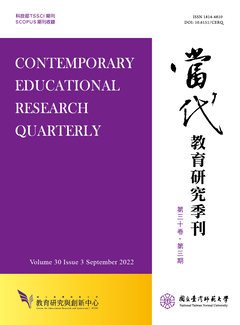

China launched its Basic Education Reform in 2001, which made greatchanges in its political and moral education. Using the interpretive text analysismethod, this study examines current Chinese elementary and junior-highschool civics textbooks, and explains how “institutionalization” and “Chinesenationalism” have significant effects on the textbooks that strengthen theauthoritarian resilience of the Chinese Communist Party (CCP). From thepolitical socialization point of view, the textbooks not only legitimize the CCPrule by the modernized and progressive civics curricula and methods, but serveto equate ideas of loving the state, loving the Chinese nation, and loving the CCPfor the purpose of promoting Chinese nationalism, so that the new generationmay believe that they should support the regime in order to be wealthy, strongand unified. This paper argues that the authoritarian resilience of CCP impliesthat China’s citizenship education will continue to be different from Taiwan’sin significant ways: the non-empowering ideas of democracy, the value of selfsacrificefor the collective, the notion of upholding the nation-state above theindividual, and the idea of loving CCP. I believe that Taiwan needs to know thenature of China’s citizenship education in its open policy, and think about how tointeract with it for peace and freedom across the Taiwan Strait.

This work is licensed under a Creative Commons Attribution-NonCommercial 3.0 Taiwan License.
Center for Educational Research and Innovation, National Tawain Normal University
162, Ho-Ping East Rd, Sec. 1, Taipei, Taiwan | Tel:+886-2-7749-3670 | E-mail: cerecerq@gmail.com
CERI | NTNU | E-mail Alerts | Open Journal System
© 2014 CERI-NTNU
